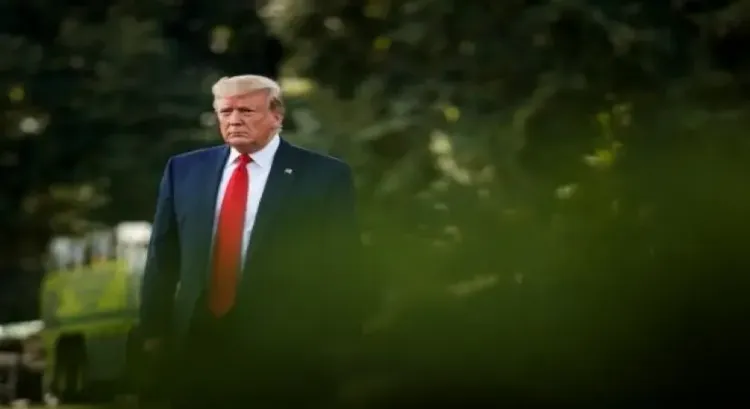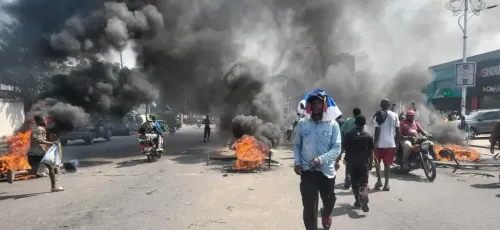Is Trump jeopardizing the 25-year India-US relationship?

Synopsis
Key Takeaways
- Trump's actions are undermining 25 years of diplomatic relations.
- Increased tariffs could strain economic ties.
- India perceives these moves as coercive interference.
- The US-India relationship is becoming a domestic political issue.
- Technonationalism may hinder future collaborations.
Washington, Aug 4 (NationPress) Recent actions taken by US President Donald Trump threaten to undermine the India-US relationship, which has been cultivated over 25 years. According to a report from the Carnegie Endowment for International Peace, this deterioration could impact bilateral ties that have benefited from over 20 years of bipartisan efforts, including during Trump's own first term.
Trump has threatened to significantly increase tariffs on Indian goods and impose additional fees for oil purchases from Russia.
In a statement on his social media platform, Truth Social, Trump noted, "India is not only purchasing vast amounts of Russian oil, but they are also re-selling much of it on the open market for substantial profits."
He added, "They are indifferent to the deaths of people in Ukraine caused by the Russian military. Therefore, I will be considerably raising the tariffs that India pays to the USA."
The report by Evan Feigenbaum from Carnegie suggests that India's perception of Trump's actions might be seen as "blunt coercion and gross interference in Indian foreign policy." He further argues that it is impractical given India's oil import needs and cynically seeks to shift blame to India for the West's failure to curb Moscow's actions in Ukraine.
Trump has also threatened to levy additional tariffs on India due to its role in the BRICS alliance, which includes Brazil, China, Russia, and South Africa. Analysts view this as another act of coercive interference.
Moreover, Trump has criticized and threatened US businesses manufacturing in India, urging them to invest in the US or face financial repercussions, thus highlighting a contradiction between Trump's "America First" agenda and Modi's "Make in India" initiative.
Trump's recent meeting with Pakistan's Army Chief, General Asim Munir, at the White House shortly after a terrorist attack in Jammu and Kashmir has raised red flags in India.
"Trump's overt admiration for Islamabad and engagement with Pakistan's military raises serious concerns in New Delhi, especially following the April 22 terrorist attack that claimed the lives of twenty-six Indian civilians in Pahalgam, escalating tensions between the two nations," the report stated.
The report emphasizes that the Trump administration continues to promote a new form of American technonationalism, where skepticism surrounds technology sharing with foreign entities. Some advisors around Trump advocate for keeping American technology domestically focused while limiting exports and collaborations with foreign partners.
For the first time in two decades, Trump's comments and coercive rhetoric have turned US-India relations into a politically charged issue within India, prompting calls from the opposition, media, and the public for the government to stand firm against Trump's threats.
Issues affecting India have become highly partisan in the US, including H1B visas for tech workers, offshoring, and technology sharing. This represents a troubling sign for the future of US-India relations as bipartisan cooperation has been a hallmark since the early 2000s.









